 |
| Associate Professor, Dr. Tran Thanh Nam highly appreciated the high school graduation exam plan in 2025. (Photo: NVCC) |
That is the opinion of Associate Professor, Dr. Tran Thanh Nam, Vice Principal of the University of Education , Vietnam National University, Hanoi, regarding the high school graduation exam plan from 2025 that the Ministry of Education and Training (MOET) has just announced.
What do you think about the 2025 high school graduation exam organization plan that the Ministry of Education and Training has just announced?
Personally, I see many new and positive points in the high school graduation exam plan from 2025 that the Ministry of Education and Training has just announced. It is consistent with the philosophy of taking learners as the center, respecting the development of multiple intelligences, consistent with the requirements of comprehensive fundamental innovation in education and training, meeting the needs of international integration.
Accordingly, candidates must take two compulsory subjects, including: Literature, Math and two elective subjects from the remaining subjects studied in grade 12, including: Foreign Language, History, Physics, Chemistry, Biology, Geography, Economic and Legal Education, Information Technology, and Technology.
The difference, though small but meaningful, is that the exam has been oriented to focus on the learner. Previously, all subjects were selected by the State, students were required to take those subjects regardless of career orientation. From 2025, students must take two subjects representing the most basic thinking abilities of an adult, which are quantitative thinking ability (mathematics) and qualitative language thinking ability (literature) and have the right to choose two subjects according to their interests, abilities, and career orientation that they intend to apply to colleges or universities.
Using the 2+2 exam method has also changed the concept of traditional exam blocks, there is no longer a combination of Natural Sciences or Social Sciences. However, this may be suitable for the reality of many new professions emerging in the labor market and new training programs that educational institutions have been building that are "transdisciplinary" in nature, combining natural sciences, social sciences and technology.
With 4 subjects, including 2 compulsory subjects and 2 elective subjects, the number of subject combinations is 36, a reduction of 1/3 compared to the current number of admission combinations. This will help simplify the university and college admission process in the future.
Having fewer exam subjects also helps society save money. Students being able to choose their exam subjects will help reduce stress for candidates and avoid the situation of only studying to cope with the exam, but will study because of their desire to explore knowledge.
Compared to other countries in the world, how are their high school graduation exams? What can we learn?
Each country has its own policies to assess the knowledge, abilities, and qualities of students to see if they are qualified to study at higher levels such as universities. Basically, they often use two basic methods: standardized ability assessment tests (such as SAT and ACT) and school-based assessments or a combination of both.
In particular, standardized broad assessment tests such as SAT and ACT mainly assess reading comprehension, essay writing and mathematical logical thinking skills... The adjustment of the two compulsory subjects, Math and Literature, has also approached the core competencies that need to be assessed in students from broad assessment tests that many countries are using.
In terms of graduation exams, countries like China, Korea, and Japan will test Chinese, Korean, Japanese, and a combination of other subjects such as Math, English, a science or social science or humanities.
In some countries of the European Union (EU) such as France (with the Bac exam), students can choose to take one of three Bac types: S (Science), ES (Socio-Economics) and L (Arts and Culture). For example, Bac S will have compulsory subjects such as Mathematics, Physics-Chemistry, Literature, Foreign Languages and subjects that students can choose from: Biology, Advanced Chemistry, Advanced Mathematics... Bac ES will have compulsory subjects such as Mathematics, Literature, Economics, Social Sciences, Foreign Languages and some elective subjects such as History, Advanced Mathematics and many other subjects; Bac L will have compulsory subjects such as Literature, History-Geography, Foreign Languages and a list of elective subjects including Literature, Arts and many other subjects.
The Abitur graduation exam system in Germany will include compulsory subjects of Literature and Mathematics with specialized subjects chosen according to interests in Physics, Chemistry, Biology, History, Geography, Foreign Languages, and many other options combined with comprehensive assessment of aptitude and other skills of the individual such as leadership, self-management, teamwork, problem-solving analysis.
Thus, the 2025 exam plan has basically absorbed and approached the graduation exam organization plans of other countries. Including compulsory subjects to assess core competencies such as language thinking (reading comprehension and essay writing) and logical-quantitative thinking (Mathematics).
However, through many evidences, it is seen that the exam causes too much trauma and psychological pressure, and does not accurately measure the abilities and qualities of the learner. Therefore, recently, university admission is not only based on the exam scores but also combines and places more weight on direct competency interviews and review of the learning process through academic records.
The exams not only focus on assessing academic knowledge but also soft skills and abilities such as self-control, ambition, flexibility, leadership, teamwork, problem solving and impressive communication. These are the things we need to continue to absorb and implement effectively.
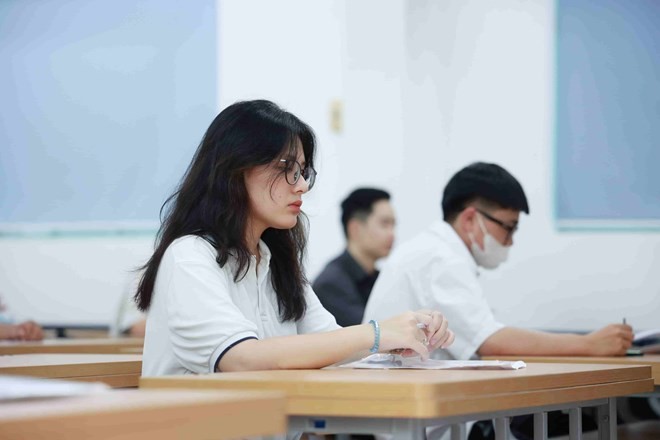 |
| Candidates taking the high school graduation exam. (Source: Labor) |
The thing I see the most debate is the non-compulsory foreign language test. From the experience of countries around the world, some countries still consider foreign languages as a compulsory subject (even specifying English as the compulsory foreign language) and some other countries do not. This is something that needs further research.
If we use the Foreign Language option as a compulsory subject, we can even directly require it to be English because English is now the common language in business, science, and technology programming, an important tool for individuals to connect with the rest of the world, preparing them to integrate well into the professional world later.
If we value critical thinking, then the requirement for foreign languages is also a way to practice communication skills and improve critical thinking capacity (learning to think in a new language).
However, we must also consider that the context of Vietnam will be difficult for many students in remote areas, ethnic minority students whose mother tongue is not Kinh, and having to take this subject as a compulsory test will create a lot of tension and inequality between students in advantaged areas and disadvantaged areas.
With the rapid advancement of technology in the future, language will no longer be a big barrier because all information can be translated directly by AI in real time. Therefore, I tend to support not making Foreign Language a compulsory subject. When it is necessary to use a foreign language for work, there are also many international certificates that can be used to assess the achievement of standard competence.
According to many experts, the high school graduation exam needs to follow the principle of what you study, what you test, and not what you study, what you test. The high school graduation exam results provide data for university and vocational education admissions and do not play a direct role in admissions. What is your opinion?
What we need to change is to “emphasize learning” and not “emphasize exams”. Study for the purpose of discovering knowledge, and be passionate about learning because you want to conquer new things in your field of expertise, not to study to achieve achievements to assert yourself, to please your family and teachers.
How can learners see exams or tests as a medical examination, repositioning their knowledge and abilities to adjust plans to help them achieve career goals and future success instead of fear of failure?
How can both society and students not breathe a sigh of relief when seeing the number of subjects at the minimum level because of the fear of academic pressure? The new general education program should have drawn a portrait of high school students with what abilities and qualities, then high school graduates should be assessed on all subjects to reflect whether all the required abilities and qualities are met or not.
According to you, what are the important criteria of human resources to meet the socio-economic development of the country?
Economic and social development requires a high-quality human resource, not only mastering knowledge but also possessing many very important qualities, such as the abilities of 21st-century citizens, creativity, adaptability and flexible problem-solving, critical thinking, ambition and desire to contribute. These qualities and abilities also need to be included in the system for comprehensive assessment, reflecting students' abilities and preparation for their future studies and careers.
Thank you!
Source




![[Photo] Binh Trieu 1 Bridge has been completed, raised by 1.1m, and will open to traffic at the end of November.](https://vphoto.vietnam.vn/thumb/1200x675/vietnam/resource/IMAGE/2025/10/2/a6549e2a3b5848a1ba76a1ded6141fae)





















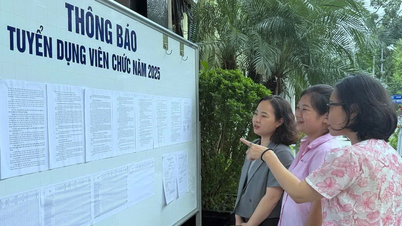







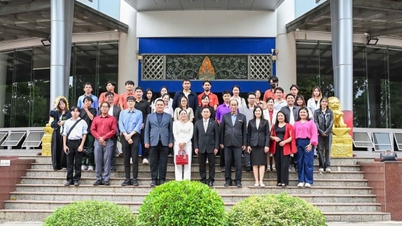














































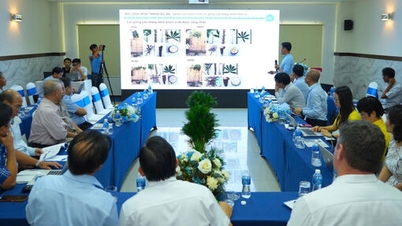


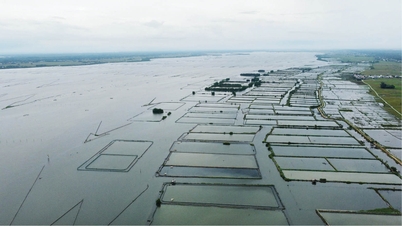


















Comment (0)